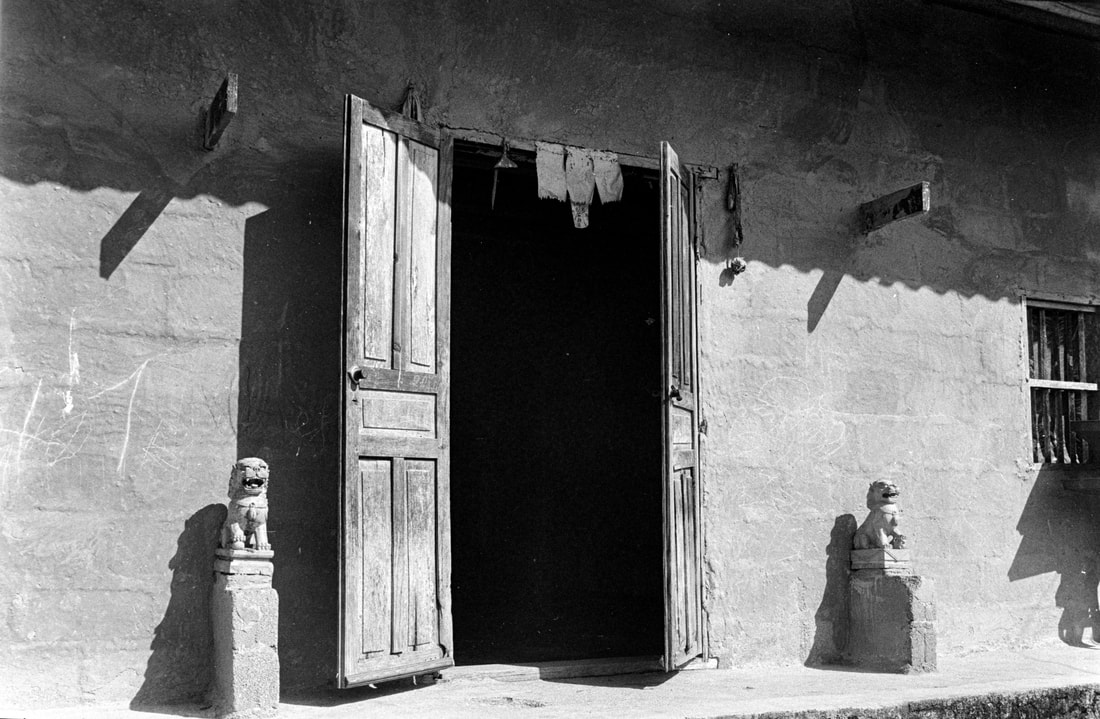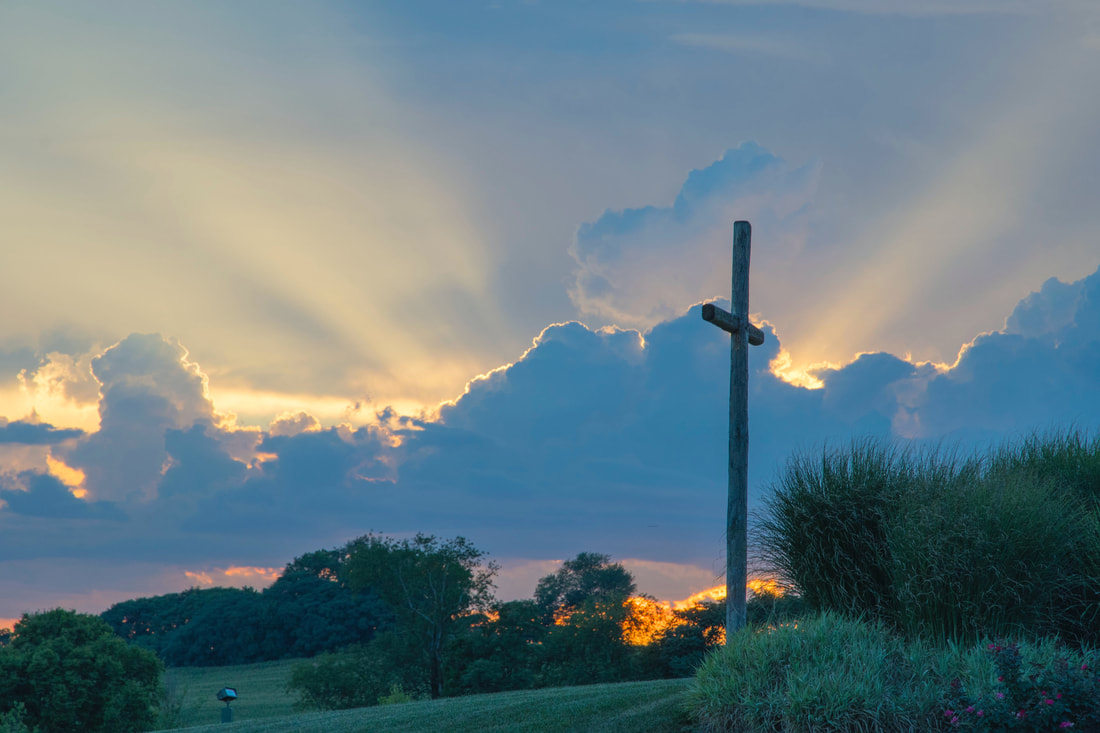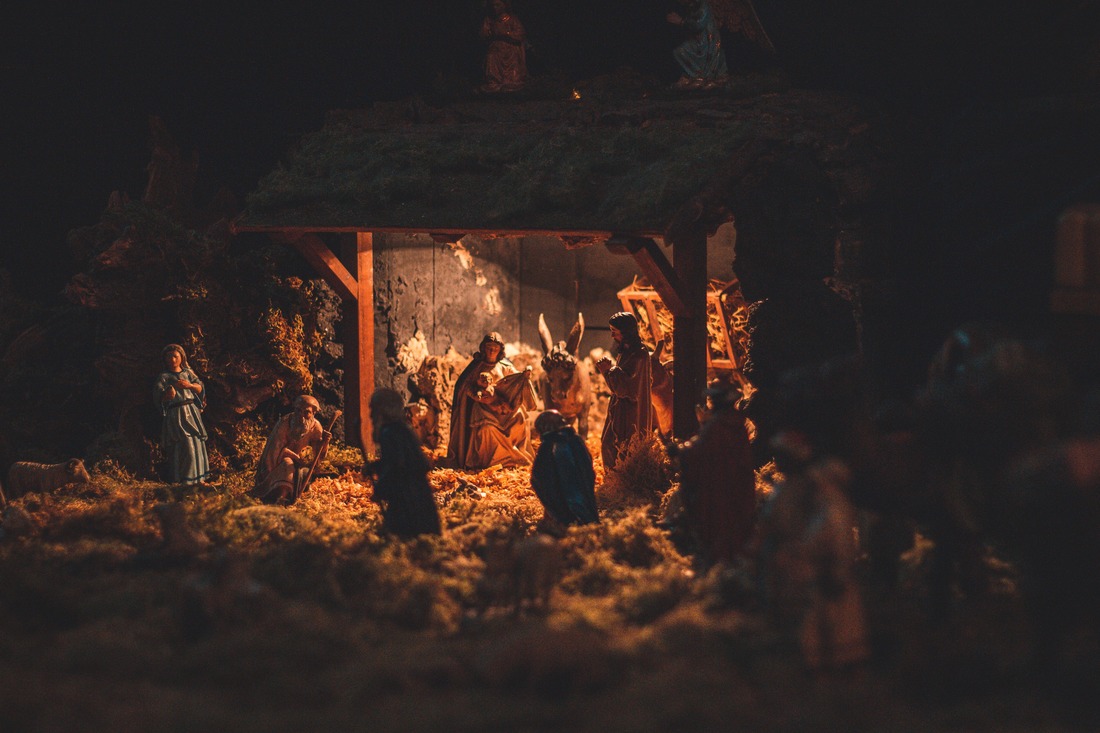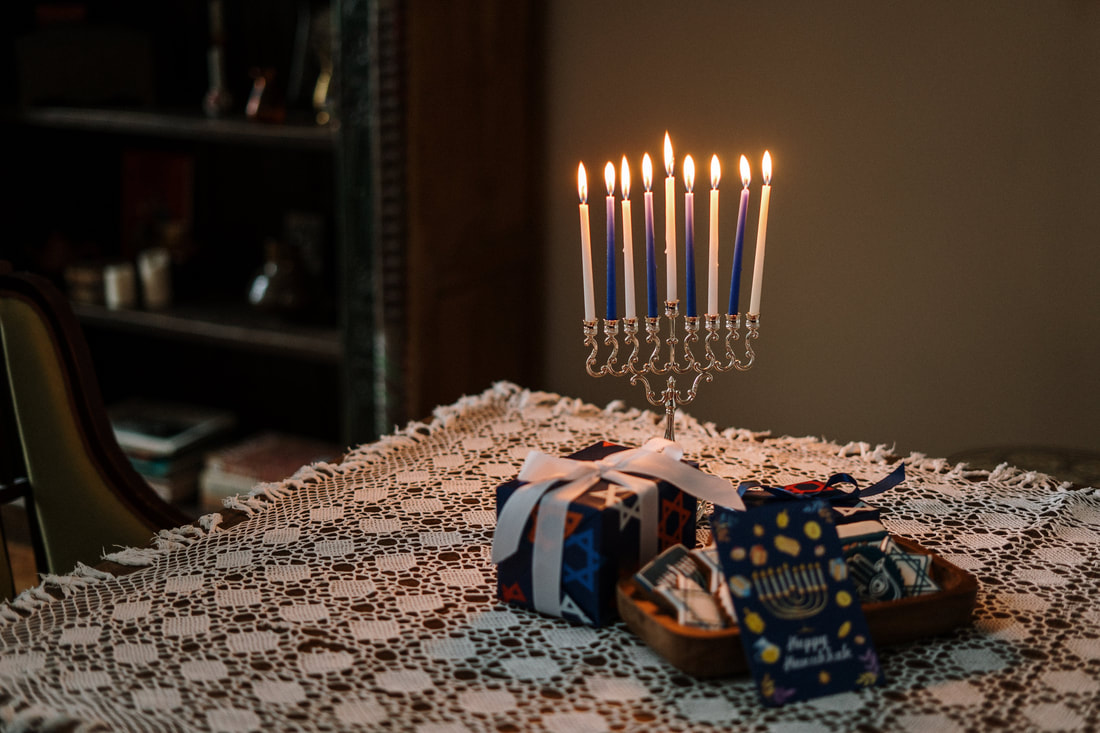|
A new year on the Gregorian calendar is beginning, 2024. On the Hebrew calendar the new civil year of 5784 began in September. You will notice that the last number of the year on each calendar are the same. Those who understand Hebrew numerology pay particular attention to this number because it can help them determine what could be in store for us in the year to come.
The Hebrew word for four is Dalet, which is a picture of a door. Thus, prophets have been declaring that this is the year of the open door. They believe that the door is being opened for us to have a deeper relationship with the Lord and a deeper understanding of His Word. Of particular interest to me is Isaiah 22:20-24. "In that day I will summon my servant, Eliakim son of Hilkiah. I will clothe him with your robe and fasten your sash around him and hand your authority over to him. He will be a father to those who live in Jerusalem and to the house of Judah. I will place on his shoulder the key to the house of David: What he opens no one can shut and what he shuts no one can open. I will drive him like a peg into a firm place; he will be a seat of honor for the house of his father. All the glory of his family will be hung on him..." We should delve deeper into the picture that this scripture paints. First of all, Eliakim means "raised up by God," and he is a picture of Jesus who was raised up by the power of God to rule over His house. Hilkiah means "my portion is Yahweh." It is Jesus who has unlimited control that has been given to Him by His Father. According to the footnote for Isaiah 22 in The Passion Translation, the doors that are being opened (loosed) are doors of "revelation, treasure, favor, and opportunity. When He closes (binds) those doors, no amount of human striving can open them." The key to the house of David is a Kingdom key. The Church of Philadelphia received a letter that repeated the prophetic words from Isaiah 22. "These are the words of him who is holy and true, who holds the key of David. What he opens no one can shut, and what he shuts no one can open. I know your needs. See, I have placed before you an open door that no one can shut..." (Revelation 3:6-8) Also, we should note that Jesus used similar words to illustrate the authority He was given by God that He will transfer to His disciples. "I will give you the keys of the Kingdom of heaven; whatever you bind on earth will be bound in heaven, and whatever you loose on earth will be loosed in heaven." (Matthew 16:19) Keys represent spiritual authority and power. They are needed to open doors. Just as Jesus gave His disciples this authority to preach the Gospel and bring others into His Kingdom, He gives these keys to His Church. The key to the house of David would be a heart of worship that overcomes the things of this world. It is worship that unlocks truth. As Believers in Jesus, the Church has a responsibility to unlock truth by using the keys we have been given. He has tasked us with bringing the Kingdom of Heaven to earth and has empowered us with Spiritual authority to carry out His mandates. 2024 brings us new opportunities. We must look for the doors that God is opening and closing in our lives, and strategically position ourselves to walk through the openings. He has a unique part for each of us to play in His Kingdom work. He is ready to equip us with the wisdom and knowledge we will need to conduct His plans for this season. In addition, as we walk through the open doors that the Lord is presenting; we will be coming into the fulfillment of our destinies Prophecies abound in the Old Testament about Christ's birth, life, and death. One that stands out is Psalm 22, because it blends predictions of both of Messiah's comings. It reminds us of His birth and that the birth of Yeshua, our Savior, was a precursor to His death. It gives a detailed description of the horrific death of Jesus on the Cross. Footnotes in The Passion Translation of the Bible tell us that 33 prophecies from Psalm 22 were fulfilled when Jesus was on the Cross. I find this particularly fascinating as Jesus lived on the earth for 33 years. Finally, it prophecies the birth of sons and daughters of the Lord, spiritual seed who will serve the Lord.
As we contemplate the birth of our Savior and rejoice in HIs coming during this season, we must remember what the Lord sacrificed in the humility of coming to earth as a baby. At his birth He was wrapped in cloths like the lambs who would be sacrificed at the Temple. Afterward He was laid in a manger (a feeding trough). I wonder about the level of consciousness that Jesus had while lying in the manger. Was He contemplating what would happen to Him in 33 years? Jesus would be moved from the manger to a cross. Later He would remember His Father's care for Him as a baby. "Lord, you delivered me safely from my mother's womb. You are the one who cared for me since I was a baby. Since the day I was born, I've been placed in your custody. You've cradled me throughout my days. I've trusted in you, and you've always been my God. So don't leave me now; stay close to me! For trouble is all around me, and there's no one else to help me." (Psalm 22:9-11 - TPT) The description of the horrors perpetrated against Jesus are not for the faint of heart. Our minds cannot comprehend the torture He endured. Jesus cried out, "But look at me now; I am like a woeful worm, crushed, and I'm bleeding crimson. I don't even look like a man anymore. I've been abused, despised, and scorned by everyone..." (Psalm 22 6,7 - TPT) That peaceful manger scene we look at during the Christmas season would change as the devil plotted to destroy the Son of God through cruel and calculated means. There is hope revealed in the prophecy of Psalm 22. Between verses 21 and 22 the powers of darkness have been defeated and the glorious resurrection of Jesus took place. "Save me from all the power of the enemy, from this roaring lion raging against me and the power of his dark horde. I will praise your name before all my brothers; as my people (The Church) gather I will praise you in their midst." (Psalm 22:21, 22 - TPT) The Lord's desire for intimacy with the individuals He created was accomplished as He brought Jesus from the cradle to the Cross. We, His spiritual children, are included in the prophecy: "From the four corners of the earth, the people of the world will remember and return to the Lord. Every nation will come and worship Him. For the Lord is King of all, who takes charge of all the nations...They will come and worship this worthy King! His spiritual seed shall serve Him. Future generations will hear from us about the wonders of the Sovereign Lord. His generation yet to be born will glorify Him. And they will all declare, 'It is finished!'" (Psalm 22:27-31 - TPT) We are His spiritual seed! Our celebration of the birth of Christ must include the celebration of His death and resurrection. Our responsibility as His seed is to be rooted and established in His love and to grow in that love so that we can spread it throughout our communities. We must understand that the manger of His love will lead us to our own cross that brings with it death and resurrection life. During this season, may God pour out His abundant love on us so that we are filled with wonder and awe at the plan of God for our salvation. We cannot contemplate the birth of Christ without looking to His death and resurrection. They will forever be joined together with the overarching purpose of Love. Love brought Jesus to earth so that He could demonstrate the personality of Father God and then pay the penalty for our sins. Like the sacrificial lambs offered as sin offerings, He had to become as one of them—spotless and pure. He was the only acceptable offering.
Jesus is called the Son of God and the Son of Man. He shared God's nature and represents His intentions. "This is how God showed His love among us: He sent His one and only Son into the world that we might live through Him. This is love: Not that we loved God, but that He loved us and sent His Son as an atoning sacrifice for our sins." (1 John 4:9, 10) Jesus is God in His mercy form. He came to satisfy the justice of God. Jesus Himself told us that He is the Good Shepherd in John 10:11. "I am the good shepherd. The good shepherd lays down his life for the sheep." We should be interacting with this Shepherd King. "My sheep listen to my voice; I know them, and they follow me. I give them eternal life, and they shall never perish; No one will snatch them from my hand." (John 10:27, 28) God allowed the prophet Ezekiel to identify the Lord as Israel's Shepherd. "'You are my sheep, the sheep of my pasture, and I am your God,' declares the Sovereign Lord." (Ezekiel 34:31) The prophet Isaiah also explains what is to come. "Therefore, the Lord will give you a sign: The virgin will conceive and give birth to a son and will call him Immanuel." (Isaiah 7:14) When an angel of the Lord appeared to Joseph to confirm that Mary would conceive a son who comes from the Holy Spirit, we are told, "All this took place to fulfill what the Lord had said through the prophet." (Matthew 1:22) We are encouraged by Jesus Himself in John 15:9. "As the Father has loved me, so have I loved you. Now remain in my love." Immanuel is such a comforting name for Jesus who is "God with us." In order for Jesus to be "God with us," He had to humble Himself to come to earth so that He could become one of us. He came not just to be with us, but to be our Savior. His ministry on the earth would only last for three years. The culmination of that time was at the end, when He willingly died for our sins so that He could be our Savior. Not only has He saved us, but He also redeemed us. He came to reverse the curse of sin and death and to free us from the power of evil. That is why He has the name Redeemer. As we can see from some of the names Jesus is called, He came to earth to fulfill the mercy of God. He is the sharer of God's nature as the Son of God. His role as our Good Shepherd and Savior has been accomplished, and His title, Redeemer is still being accomplished. Romans 8:34 assures us that, "...Christ Jesus who died--more than that, who was raised to life--is at the right hand of God and is also interceding for us." What part does God want us to play in all of this? We should see that as children of God, we are also being sent. "As the Father has sent Me, I also send you." (John 20:21) This season should be one of great awe and wonder for us as we contemplate the miraculous events of our Savior and Redeemer's life. This should also be a season of great gratitude for the humility and love that has been shown us. All praise and honor belong to Him. "Command the Israelites to bring you clear oil of pressed olives for the light so that the lamps may be kept burning...Aaron and his sons are to keep the lamps burning before the Lord from evening till morning. This is to be a lasting ordinance among the Israelites for the generations to come." (Exodus 27:20,21) This command from the Lord is repeated in Leviticus 24:2-4. "Command the Israelites to bring you the clear oil of pressed olives for the light so that the lamps may be kept burning continually...Aaron is to tend the lamps before the Lord from evening till morning, continually. This is to be a lasting ordinance for the generations to come. The lamp on the pure gold lampstand before the Lord must be tended continually."
Keeping the light burning was the main responsibility of the priests in the Levitical tribe. We can well imagine the horror of the Jews when their Temple in Jerusalem was taken over by Antiochus Epiphanes and desecrated. Antiochus demanded loyalty to the Greek culture from the Jewish people. He went as far as to erect a statute of himself in each town in Israel and demanded the Jews to bow down and worship it. A family of Levitical priests called the Maccabees, led by Mattathias, refused to comply, and began a revolt. Guerrilla warfare was waged for several years beginning in 167 BC. Through their hard-fought battle, the Maccabees defeated the Syrian Greeks and retook Jerusalem and the Temple. Since the altar had been defiled by the sacrifice of a pig, they removed all of its stones and built a new one. Then, they set about to relight the seven-branched menorah with only one day of oil remaining. To their delight, it burnt for eight days, the length of time needed to cure a fresh batch of olive oil. This victory has been celebrated ever since at The Festival of Hanukkah, which is also called The Festival of Lights. Actually, Hanukkah means Dedication, as the Jews rededicated the Temple and its service to God. Since the lampstand remained lit for eight days, Jewish families light their miniature menorahs that now have eight branches plus one additional elevated branch in the center. The center candle, called The Shamash or Servant, is used each night to light the other candles. This tradition has significance for those who are Christians. There is symbolism in this ceremony that may be missed by those who do not know Messiah, Yeshua. The center candle represents Him. Is it not fitting that the Shamash lights all the other candles? Let us also remember that the number eight stands for new beginnings and sanctification. As the Servant of the Lord, Jesus is the Light of the World. He is the one who illuminates everyone. As the eternal flame that does not go out, He continues to light one candle at a time until all of us are lit. Jesus celebrated Hanukkah as it tells us in John 10:22. It was during this festival that he declared His divine identification. Since the physical Temple no longer exists, Believers in Jesus have become the Temple of God (1 Corinthians 6:19), each illuminated by the Shamash. During this season of Hanukkah, we must rededicate our temples through the burning of our oil and the shining of our lights. It is the oil of the Holy Spirit that ignites our lights. "...Let your light shine before others that they may see your good deeds and glorify your Father in heaven." (Matthew 5:16) Our oil supply is unlimited and will keep our flames burning brightly in our hearts endlessly. “Tis the Season" is a phrase frequently heard in our society during the weeks before Christmas. The singing of "Deck the Halls" is an annual tradition when we are reminded, "Tis the season to be jolly!" Indeed, it refers to the festivities of the holiday season. However, it was originally used in connection with warm weather and the celebration of springtime. I would like to put a new spin on this phrase by connecting it to the celebration of Advent. This word is from the Latin "adventus," meaning "coming" or "arrival." The four weeks before Christmas are meant for us to prepare for the birth of Christ. It is a season for waiting, reflection, and expectation.
The origins of Advent are difficult to trace. Some say it began in the fourth and fifth centuries in Spain and Gaul as a season of preparation for baptism of new Christians during Epiphany, when the Magi visit Jesus. Others say it started in 380 AD during the Council of Saragossa--a series of bishops meetings in Spain to adopt eight canons of their faith. Still others say it had its origins in 480 AD when monks fasted every day of the Advent season. Most would agree that it was not until the Middle Ages that Advent was linked to Christmas. The Roman Catholics not only tied the birth of Christ to Advent, but also the second coming of Christ in the clouds after He judges the world. Churches who use an ecclesiastical calendar celebrate Advent. They include Roman Catholics, Anglicans, Lutherans, Episcopalians, Presbyterians, and some Methodists. The Advent wreath, evergreens twisted into a circle with four or five candles, are used in many of these churches. Each candle is used to count off the weeks before Christmas. The wreath is meant to demonstrate that there is no beginning or end to God's love for the world. I read in Christianity.com that the wreath was created in 1839 by Johann Wichern, a German man who founded a children's home. He needed a way to help the children keep track of the time when Christmas would arrive. Advent begins on the Sunday closest to November 30. The first candle lit on the wreath is called the Prophecy candle and stands for hope. The second one is the Bethlehem candle that calls for peace. The third candle is the Shepherd candle that represents joy. And the fourth candle is called the Angel candle which stands for love. If a fifth candle is included in the center, it is called the Christ candle that represents purity, light, holiness, and victory. It is lit on Christmas eve. There are Scriptures typically read during the Advent season. These include Isaiah 7:14 and 9:6-7, Micah 5:2, Zechariah 9:9 and 12:10, and Malachi 3:1 All of these point to the awaited Messiah. Another verse that is read comes from Isaiah 40:31. "But those who hope in (wait upon) the Lord will renew their strength. They will soar on wings like eagles; they will run and not grow weary. They will walk and not be faint." It is important that we do this waiting and hoping with expectation and that we reflect on the gift that God has given us. We should be reminded of God's great love for us in that the Son of God is Immanuel (God with us), and that the baby Jesus would grow up to become the sacrifice for the sins of all humanity. He did this so that we could spend eternity with Him in heaven. "He humbled Himself by becoming obedient to death--even death on a cross! Therefore, God exalted Him to the highest place and gave Him the name that is above every name, that at the name of Jesus every knee should bow, in heaven and on earth and under the earth, and every tongue acknowledge that Jesus Christ is Lord to the glory of God the Father." (Philippians 2:8-11) Hallelujah! |
Joan E. MathiasCategories
All
Archives
July 2024
|





 RSS Feed
RSS Feed